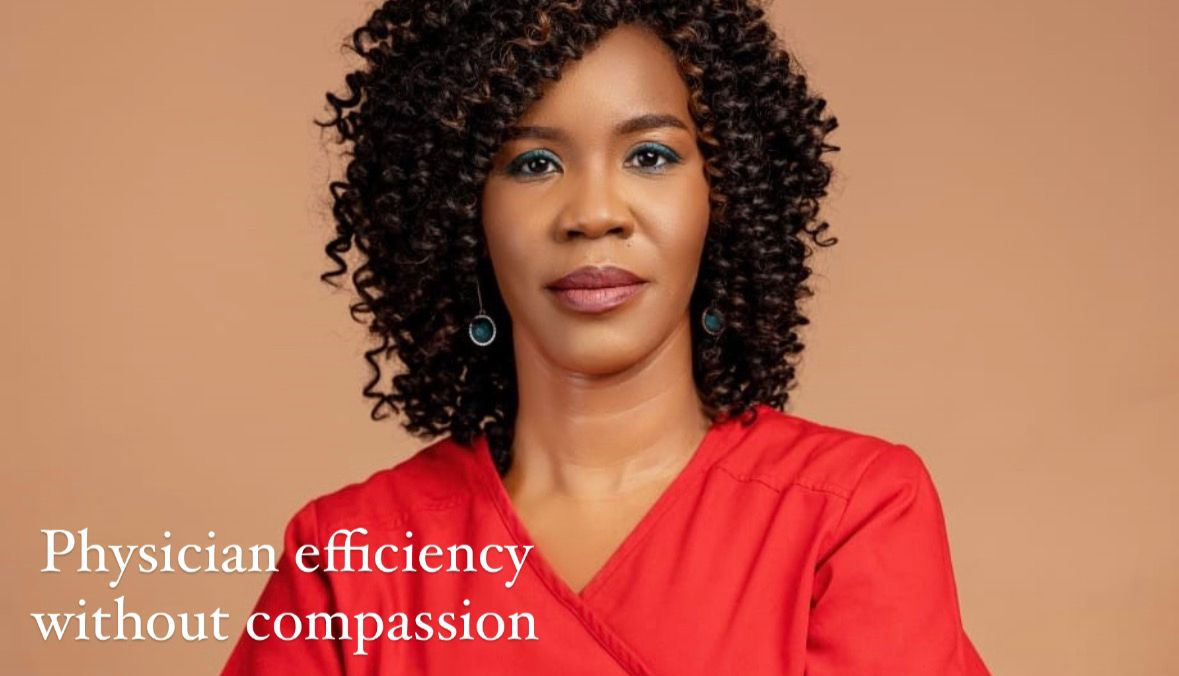Miriam Mutebi posted on LinkedIn:
“‘I was 65 when I was diagnosed and told, ‘You have cancer; we will remove your breast since you clearly don’t need it!”
These were the words of a woman, who approached me after a talk I gave to breast cancer survivors in East Africa. I had discussed the possible complications of breast surgery and what clinicians typically share with patients beforehand. During the talk, I noticed some patients looking shocked or apprehensive as I spoke. I later understood why.
The woman who shared her story explained how curt her surgeon had been, and how listening to me felt like a fairy tale compared to her harsh reality. She wasn’t alone—many in that room had endured similar experiences. I was struck by how their stories perfectly illustrated ‘physician efficiency without compassion.’
Indeed, empathy is a fundamental aspect of effective cancer care delivery. Because Cancer isn’t just a physical battle—it’s an emotional and psychological one as well. Patients and their families face overwhelming uncertainty, fear, and anxiety every time the ‘C’ word comes up. Clinical expertise is vital in such moments, but the emotional support healthcare professionals provide is equally crucial.
Empathy allows healthcare providers to connect with patients on a deeper level; understanding their fears, concerns, and needs. This connection makes a significant difference in the patient’s experience and outcomes. It builds trust, enhances communication, and ensures that care is truly, patient-centered.
If you’re battling cancer, knowing you’re not just another case number, but a person whose emotions and dignity are respected can be profoundly comforting. It reminds you that you are not alone and your care team will support you every step of the way.
While it is true that healthcare providers do frequently feel overwhelmed by the numbers, it doesn’t take more than 10 minutes to really ‘see’ our patients. Even a small inquiry about their family, work, favorite cow, etc., helps humanize these frequently difficult interactions. A little well-placed humor acts as a salve that lightens their care journey. I am humbled by patients, who can find a bright spark amidst difficult processes.
Empathy extends beyond direct patient care and influences how we design policies, shape healthcare environments, and train future healthcare professionals. Whenever empathy is woven into the fabric of cancer care, it leads to more compassionate, effective, and holistic approaches to treatment.
As we continue our 54 Days of Cancer Advocacy, let’s remember that while treatments and technologies are vital, empathy provides the most comfort to those facing the hardest battles.”
Source: Miriam Mutebi/LinkedIn
Miriam Mutebi is a Breast Surgical Oncologist and Assistant Professor in the Department of Surgery at the Aga Khan University Hospital in Nairobi, Kenya. She is also the Vice-President of East Africa of the African Organization for Research and Training in Cancer (AORTIC), treasurer for the Kenya Society of Hematology and Oncology (KESHO) and on the Board of Directors of the Union for International Cancer Control (UICC).
She is the co-founder of the Pan African Women’s Association of Surgeons and is part of the Kenya Association of Women Surgeons. She is an avid supporter for the education and support for women, especially in surgery and she aims to provide mentorship for women in surgery and to improve women’s health and surgical care in Africa. She is currently pursuing a pilot’s license in order to extend breast care services to marginalized areas.


